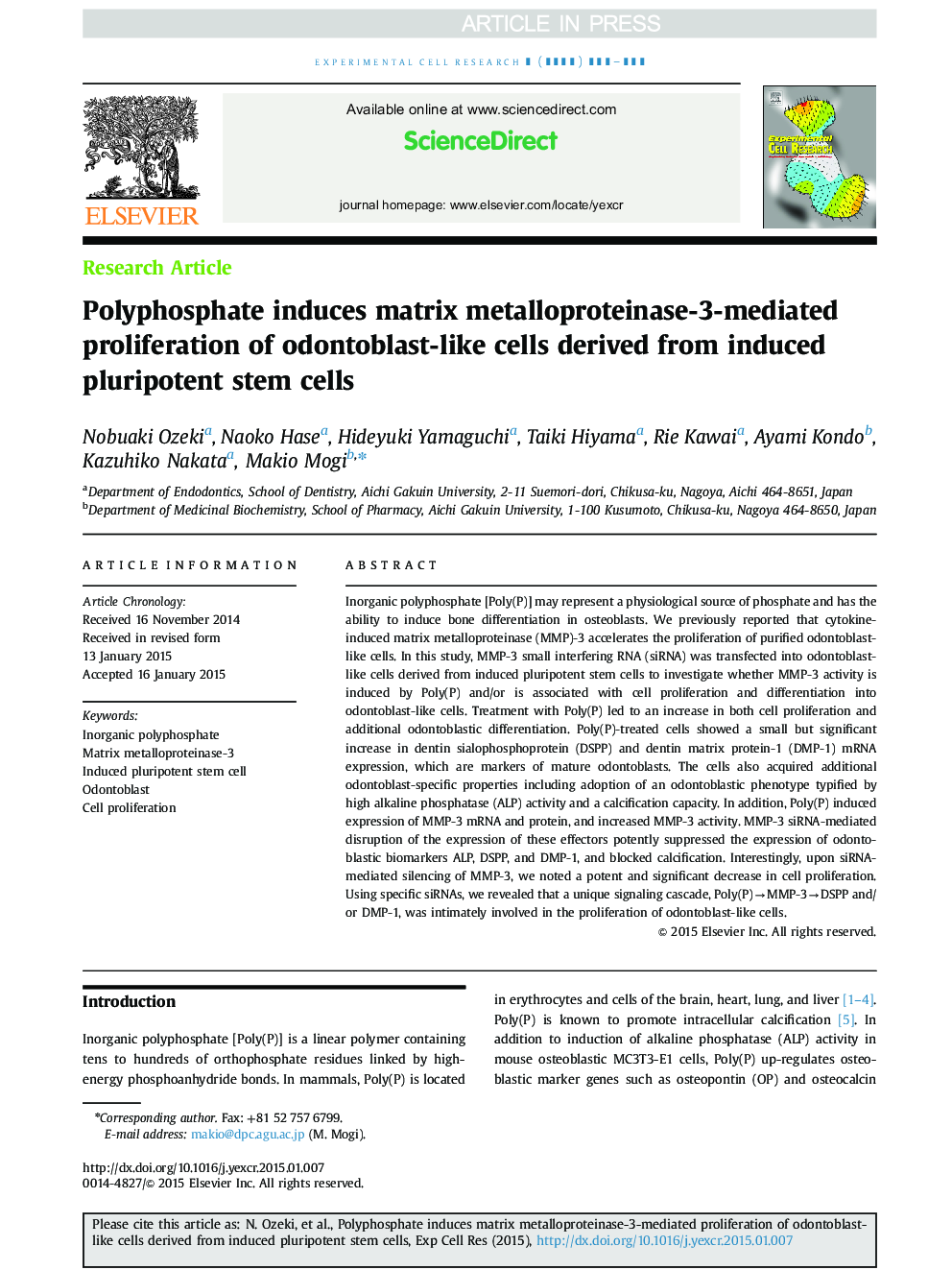| Article ID | Journal | Published Year | Pages | File Type |
|---|---|---|---|---|
| 10903808 | Experimental Cell Research | 2015 | 13 Pages |
Abstract
Inorganic polyphosphate [Poly(P)] may represent a physiological source of phosphate and has the ability to induce bone differentiation in osteoblasts. We previously reported that cytokine-induced matrix metalloproteinase (MMP)-3 accelerates the proliferation of purified odontoblast-like cells. In this study, MMP-3 small interfering RNA (siRNA) was transfected into odontoblast-like cells derived from induced pluripotent stem cells to investigate whether MMP-3 activity is induced by Poly(P) and/or is associated with cell proliferation and differentiation into odontoblast-like cells. Treatment with Poly(P) led to an increase in both cell proliferation and additional odontoblastic differentiation. Poly(P)-treated cells showed a small but significant increase in dentin sialophosphoprotein (DSPP) and dentin matrix protein-1 (DMP-1) mRNA expression, which are markers of mature odontoblasts. The cells also acquired additional odontoblast-specific properties including adoption of an odontoblastic phenotype typified by high alkaline phosphatase (ALP) activity and a calcification capacity. In addition, Poly(P) induced expression of MMP-3 mRNA and protein, and increased MMP-3 activity. MMP-3 siRNA-mediated disruption of the expression of these effectors potently suppressed the expression of odontoblastic biomarkers ALP, DSPP, and DMP-1, and blocked calcification. Interestingly, upon siRNA-mediated silencing of MMP-3, we noted a potent and significant decrease in cell proliferation. Using specific siRNAs, we revealed that a unique signaling cascade, Poly(P)âMMP-3âDSPP and/or DMP-1, was intimately involved in the proliferation of odontoblast-like cells.
Keywords
Related Topics
Life Sciences
Biochemistry, Genetics and Molecular Biology
Cancer Research
Authors
Nobuaki Ozeki, Naoko Hase, Hideyuki Yamaguchi, Taiki Hiyama, Rie Kawai, Ayami Kondo, Kazuhiko Nakata, Makio Mogi,
